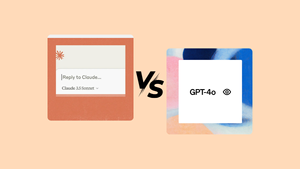Meta's generative AI chatbot, Meta AI is available on all its platforms – Facebook, Instagram, Messenger, and WhatsApp, at meta.ai and their Ray-Ban Meta Smart Glasses. For the average user, it's the former integration of Meta AI that's the most important since most people are not actively using AI chatbots in their daily lives.
But when you encounter something in an app you use daily, you can become curious to try it out. You can use Meta AI within these apps to create images, stickers, etc., or chat with it directly or add it to other chats to ask any questions. Now, anyone who knows Meta knows that controversy seems to surround the company a lot, especially when it comes to user data.
And now, with generative AI in the mix (something that's steeped neck-deep in controversy when it comes to data), there are bound to be more concerns. And your concerns are not ill-founded.
What data does Meta use to train its AI?
Recently, Meta made a change to its privacy policy to indicate that it will be using your posts on Facebook and Instagram to train their AI. The data Meta will use to train their AI will not include users' private chats with friends and family, though, as Meta has stated explicitly.
But it also clearly states that it will use your "interactions with AI at Meta features" which means your chats with the AI are fair game, which is expected, as every chatbot does it at this point. That's why it's important to never disclose any personal information while interacting with an AI. Meta retains the training data for as long as it deems it "necessary" so making sure that you use the AI responsibly falls on your shoulders.
However, users are more concerned about Meta using their posts which include photos and captions on Instagram and Facebook for training the AI.
It takes a lot of data to train generative AI and companies are running out of data. Meanwhile, Meta has been sitting on a treasure trove of data; there was no way that the company would not use it.
However, for many people, it's more than an uncomfortable thought. People's Facebook and Instagram posts include a lot of stuff. Not only are we using these platforms to share pictures of ourselves, and friends and families, but people have been using them to share their work and build an audience as well. There are already so many concerns with companies scraping data from the Internet to train their AI and not respecting artists' work and copyrights. Amidst all this, this move from Meta was bound to not sit well with some users.
Opt out of training Meta AI
If you want, you can opt out of training Meta's AI. However, there are some caveats associated with it. Meta does not request your explicit permission to use your data to feed to its AI. In fact, as of June 26th, the new policy for training Meta's AI is already in effect. And except for users in the EU, people elsewhere might not even have gotten a notification about the upcoming change in policy in clear words.
If you want to opt out of training Meta AI, you need to fill out a form requesting the same from the company. Filling out the form, however, does not guarantee that Meta will honor that request. The company will review the form, in consistence with your local laws.
What does that mean? For people in the EU, UK, and any other place that has strict data privacy laws in place, Meta would need to honor your request since it's required by the law to do so.
However, for people in other places, like the US, it means there's a good chance that Meta will still continue to use your posts for training its AI. In this case, you can try to set your account to private to minimize the risk, although I doubt it (nowhere in the policy does Meta use the word "public" explicitly when referring to posts it will use in training its AI anymore; it had earlier provides this distinction when Meta AI chatbot was released which makes me wonder).
To fill out the form, open your Facebook app, go to Menu > Settings & Privacy > Settings > Security Policy. You'll see the option 'How Meta uses information for generative features and AI'; click on it. Then, scroll down and click on the 'Right to object' option.
Alternatively, click this link to open the form directly; you must be signed in with your Facebook account to see the appropriate form for your region. Then, you'll find that you'll need to fill out a rather pesky form.

Fill out the form explaining how Meta's data processing is affecting you. If you're in the UK or EU, simply state that you wish to exercise your right under data protection laws against your personal data being processed. If you're elsewhere, explain your reasons as to why you don't want your personal data to be processed by Meta for training the AI and hope for the best.
If your request is successful, you will receive a Facebook notification as well as an email stating that. It's time to rejoice!
Similarly, for Instagram, go out and fill out this form (if it is available in your region).
Meta has always been in controversy for its practices when it comes to users' data. This time's no different. It's particularly alarming how Meta stats point blank in the form that they don't automatically fulfill requests sent using the form. Still, there's a chance that the company might fulfill your request even if you're not from a country where GDPR is in effect.











Member discussion